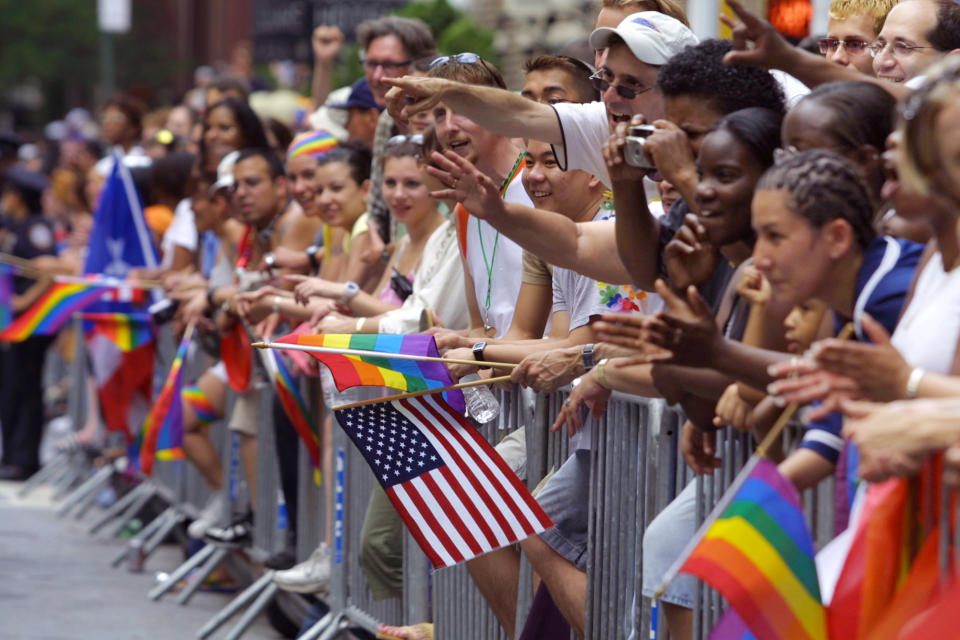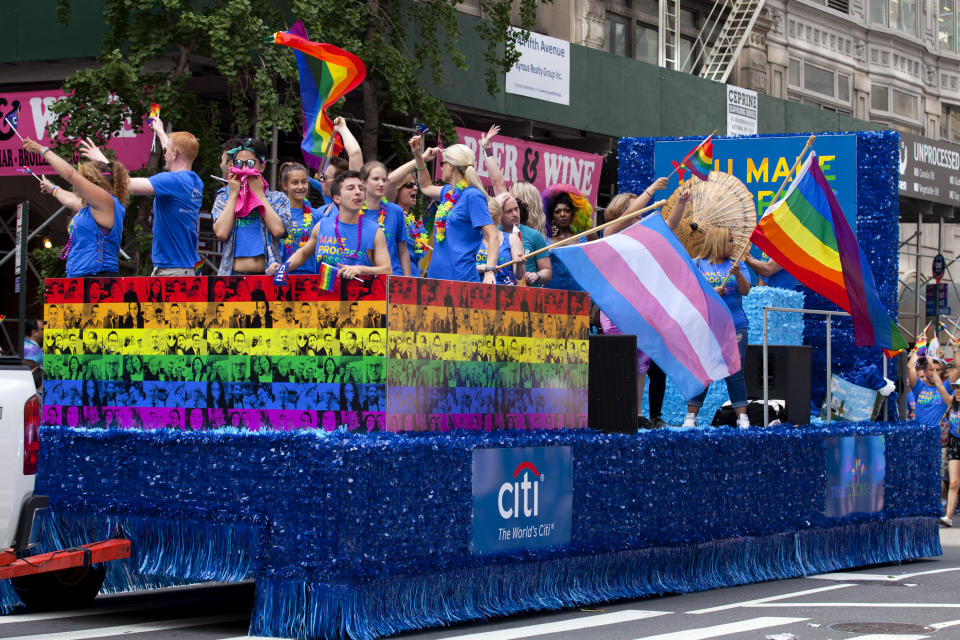Unfiltered: 'The activism that started Pride is being left behind.'
By Brian Prowse-Gany and Joyzel Acevedo
It was almost 50 years ago that NYPD raided the Stonewall Inn, a Christopher Street gay bar. The raid, an invasive police action that was typical of the time, sparked a legendary riot that led to further protests and officially jump–started the modern LGBTQ rights movement. This led to the very first Pride march, which would continue every year on the last Saturday in June to commemorate the Stonewall riots and demonstrations.
Now, 49 years after that historic event, members of the LGBTQ community from around the country are fighting a new battle, this time over proper representation within the numerous Pride festivities happening in cities around the world. Last year, Los Angeles famously changed its Pride march into a Resist march, and cities like Washington, D.C., and Philadelphia have activists battling against some of the changes their Pride festivities have gone through over the years, fearful that the main message of these assemblies is being lost in a sea of commercialization and police inclusion.
“Some of the leadership within the LGBTQ community have forgotten the roots of Pride — that Pride began with a riot,” says New York activist Jay W. Walker. “It was literally about police shaking down gay men at bars around the city. That continued for long after Stonewall.” The appearance of uniformed officers celebrating front and center within the parade has become one of the most contentious areas of debate. Many members of the LGBTQ community, like Walker, see this as a tone–deaf intrusion on the festivities. “When you look at the activist community of gays, you’ve got people that were in ACT UP in the 1980s and early ’90s who were literally brutalized by police on the regular. You’ve got people who protest against hate crimes around the time of Matthew Shepard’s death, who had police on horseback charge them.”

On top of a problematic past, Walker points out the continued strain between police enforcement and queer people of color, which continues today. “We have seen the ratcheting up of policing young black queer male– and female–identified people in the West Village, as the village becomes wealthier and wealthier. We see in Spanish Harlem, where there’s a growing of trans Latinx women who are harassed regularly by police officers, who assume they are prostitutes solely because they are trans.”
Walker has been an LGBTQ activist for more than 20 years. An early co-founder of Rise and Resist, Walker is now a prominent voice in New York’s Reclaim Pride Coalition, whose goal is to reclaim the New York City Pride march so that it better represents the LGBTQ community. The Reclaim Pride Coalition has been locking horns with Heritage of Pride (or HOP), a nonprofit organization that has been organizing New York’s Pride events since 1984.
“These people that are supposed to embody Pride and carry that mantle of Stonewall have managed to get completely removed from the routes of this march,” says Walker. “Heritage of Pride pursued the corporate community; they have pursued strong relationships with local government. As they have gotten cozier with the power structure of New York, your civic leaders, your business leaders, law enforcement, they have left the activism that started Pride behind.”
Among the many new changes instituted under Heritage of Pride’s watch includes mandatory wristbands for all participants in the march, a maximum of 200 people allowed in each marching contingent, excessive barrier restrictions along the route, and perhaps most infuriating to the members of Reclaim Pride, a new parade route determined by members of the NYPD that has shifted the focus away from the historic West Village area.

Add these new factors, along with the growing trend of politicians and corporations appearing in the march, it becomes easier to see why a growing number of LGBTQ community members feel that something that is rightfully theirs is being bastardized over time. “Pride has become an opportunity to go after a market. Politicians and corporations kind of take over, they take ownership of the march itself.” Says Walker, “It used to be a couple of bars, nightclubs or radio stations that had floats with go–go boys dancing around, but when it becomes a bunch of banks, it becomes problematic.” Amongst the corporate spectacle and the enthusiastic politicians, Reclaim Pride is fearful that the more marginalized members of the queer community have been forgotten, many of who are more susceptible to violence, such as trans people of color.
Reclaim Pride has been publicly delivering a list of demands to the Mayor’s Office, the NYPD, and to the public at numerous town hall meetings. Along with a ban on armed and uniformed police officers within the parade the demands include: a public apology from the NYPD for the events at Stonewall, no distribution of bracelets or set limit of community participants in the march, a limit on participants associated with corporations and politics, and inclusion of the committee in future events planning. One victory already achieved by the coalition is that it will be allowed to have a resistance contingent within the march, but other than that, Heritage of Pride has done very little to address the coalition’s concerns.
As this year’s New York Pride festivities edge closer and closer, it seems that Reclaim Pride is doubtful about what changes will occur this year, but hopes to continue the fight to ensure that changes occur by next year’s momentous march. That will be the 50th anniversary of Stonewall. As Walker says, “We need to return New York to that beacon of LGBTQ rights that it’s been rightly seen as.”


